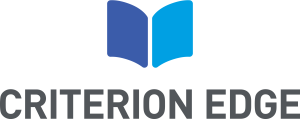Author: Ashley Self
When you work as a freelance medical writer, it’s easy to feel isolated. You likely work alone, and the nature of your work requires intense focus. And that’s fine…while you are working. But what about when you are looking for your next project? Or, if you are new to the medical writing field? The solitude that serves you so well while you are writing doesn’t foster a great network of colleagues, mentors, and potential employers—and it’s this network that helps push your career forward, expand your knowledge and refer you to new work opportunities.
According to market insights, several segments of the global healthcare regulatory affairs outsourcing market are projected to increase on average more than 13% annually between 2017-2025. Use the following networking tips to ensure you have a share of this growing market moving forward.
Step 1: Make Yourself Easy To Find
Building and maintaining your online identity or personal brand may not feel like networking, but it forms the main touchpoint for all your future networking efforts.
Build a personal website
With the availability of easy-to-use website building platforms, anyone can have a professional, well-designed website live in a matter of hours. Be sure to use your full name and keywords (like medical writing, CER writing, medical regulatory writing, as well as listing your areas of specialization) on your home page. You can use the other pages to feature links to work samples, testimonials or a list of companies you have worked with, a detailed bio of your experience and education, and even a blog that you update periodically (regular, keyword-optimized updates to your website make it more likely to be found in online search queries). Do an online search and review the websites of other medical writers to see what works.
Fill in the details of your online profiles
Simply having a LinkedIn or other professional networking profile isn’t always enough. According to Undercover Recruiter, including a professional headshot; writing a comprehensive, keyword-optimized headline and summary; and including specific keywords in your job history and skills overview may give your profile an edge.
Clean up your social media profiles
Most employers do a Google search of a prospective candidate’s name before they hire. Have you Googled your name? Now is a good time to find out what hiring managers might see. It is also wise to keep separate social media accounts for your personal and professional endeavors. Check the privacy settings of your personal accounts to make sure you are only sharing that information with trusted friends, not the general public. For your business social media profiles, use a professional profile photo and make sure your posts represent you as a job candidate.
Create a weekly blog
Finding time to write a blog in addition to working full time might sound like a stretch. But blogging can offer benefits that static websites and online profiles don’t—regularly updated content that can be found by search engines. Your weekly blog post doesn’t need to be a four-page research paper about the specifics of a new medical procedure. It can be a short five to ten paragraphs about something new in the industry that you find interesting. Just be sure to include keywords in the blog title and body.
If you’re enjoying this read so far, get some insider tips on getting a hiring manager to pick your resume.
Step 2: Network Online and in Real Life
Now that you have a comprehensive online identity, it’s time to start making connections.
Start with social media
Most people find online networking less intimidating than networking in person. That makes it a great place to start. According to a Harvard Business Review article by Doug Camplejohn, VP of Product Management at LinkedIn, the best practices of online networking are:
- Focus your inquiries on your peers, rather than upper management. While upper management has the most sway, they may not have the time to reply. Fostering relationships with your peers will ensure you have a nice network of colleagues that grow with you as you move up.
- Be brief and try to find a common ground. Maybe a peer shared an interesting article or studied at the same school as you. These make for nice icebreakers and set you apart.
- Ask a question rather than make a pitch. Inquiring what path led someone to their current position is a nice way to spark up a conversation, particularly if you are looking for a mentor. Save the pitch for later in the conversation.
Follow us on LinkedIn and Twitter to get more tips on better management of your online presence.
Join online groups and organizations
There are several regional and international associations dedicated to the medical regulatory and writing industry. Most of them boast thousands of members and offer valuable training resources and industry updates. Once you join, try to find members in or near your geographic location. As a freelancer, much of your work may originate in a city far away, however, it’s still nice to have local contacts. Similar to making contacts via social media, you can comment on other users’ posts to introduce yourself, or generate a post of your own. Maybe ask a Word formatting question or initiate a discussion on best quality control practices—something that is relevant to your work but doesn’t cover subject matter people might be uncomfortable discussing publicly online. Alternatively, you can share an article you found interesting. Finding and joining active groups on LinkedIn is also recommended. Below is a list of well-respected organizations:
Attend conferences
The above organizations host annual conferences that are attended by most major players in the industry. Now that you have a handful of online contacts, make a plan to attend a conference together or meet up at their booth. A couple of weeks before the conference is also a great time to ping organizations you are interested in working with to see if you can set up a specific time to meet with them during the conference to learn about their needs. Bring several copies of your business card and a short (half or full page) bio that includes a photo and your most relevant experience and training.
The Net Gains of Networking
Networking is usually a slow process. Think of it as forming a friendship. Friendships offer value to both parties and your networking efforts should do the same. Once a relationship has formed, foster it through regular contact. You can share some wonderful tips that have worked for you. Or maybe reach out for some advice on how to handle a complicated data set. Finally, when you move up the chain and you receive a query from a newbie writer, remember to offer them the same kindness you received all those years ago and give them a hand up.
We are constantly sharing information to keep you updated with the regulatory landscape, and to keep you connected. Follow us on LinkedIn and Twitter.


